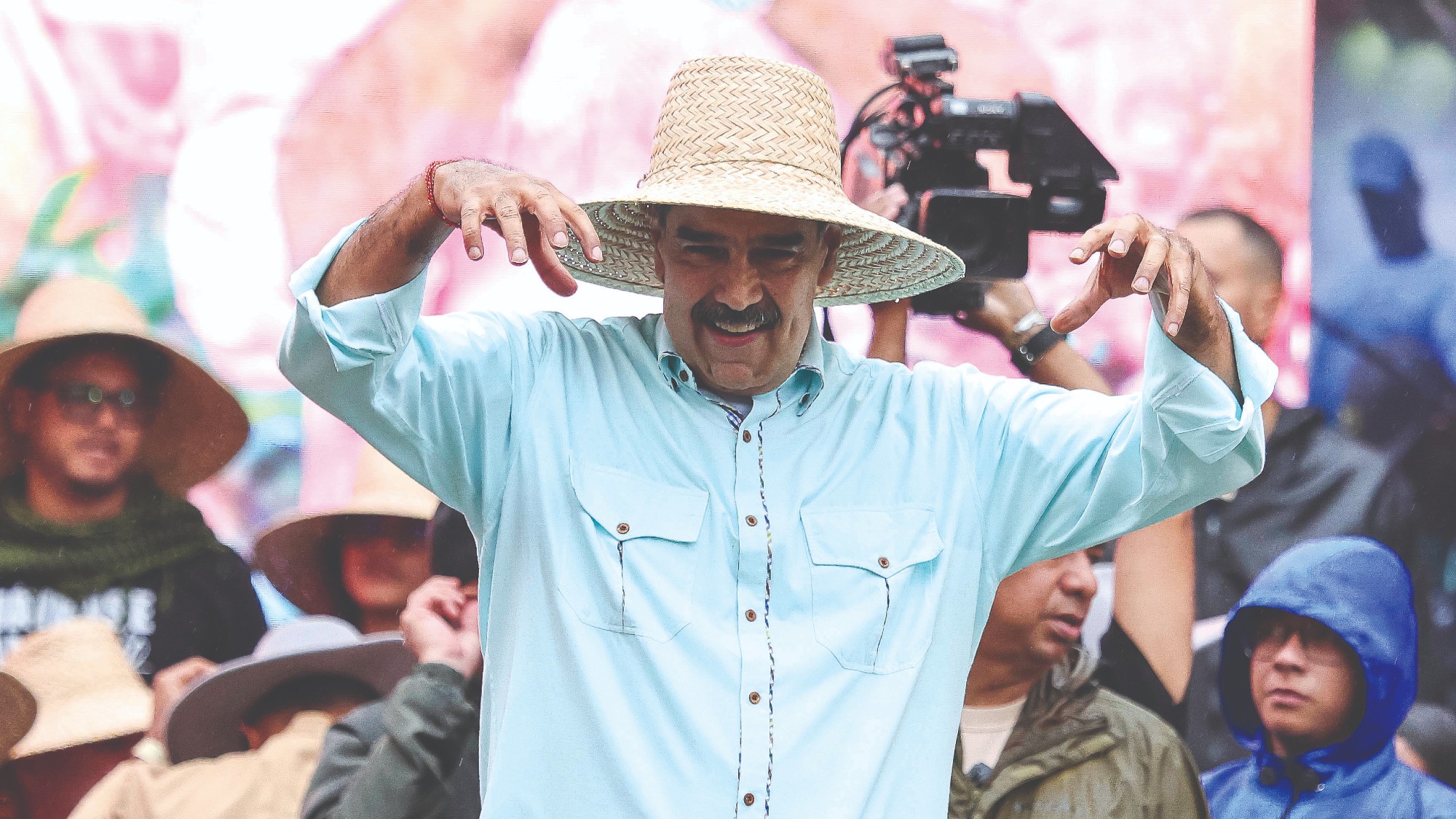Trump's clear message on the Iran deal: America is not to be trusted
The president killed the Iran nuclear deal. Say goodbye to any lingering shreds of U.S. credibility.


In a Tuesday announcement at the White House, President Trump withdrew the United States from the nuclear deal with Iran. "We cannot prevent an Iranian nuclear bomb under the decaying and rotten structure of the current agreement," he said. "Therefore, I am announcing today that the United States will withdraw from the Iran nuclear deal."
This sends a powerful signal to the rest of the world, most especially close U.S. allies: America is a deranged, crumbling basket case of a nation that can't be trusted to understand elementary logic or hold to its word, much less treat other nations with a modicum of decency or honor. The United States has become a rogue state.
Trump repeatedly implied that Iran is continuing to develop nuclear weapons. This is not the case. The point of the Iran deal was to limit that country's nuclear program to non-military uses, and in return relax some of the sanctions that have been strangling Iran's economy. The official International Atomic Energy Agency inspectors and U.S. intelligence agencies have both repeatedly confirmed that Iran is holding its end of the bargain, and not pursuing a nuclear weapons program.
The Week
Escape your echo chamber. Get the facts behind the news, plus analysis from multiple perspectives.

Sign up for The Week's Free Newsletters
From our morning news briefing to a weekly Good News Newsletter, get the best of The Week delivered directly to your inbox.
From our morning news briefing to a weekly Good News Newsletter, get the best of The Week delivered directly to your inbox.
In return, America had already gone back on its word in part, by imposing more sanctions for reasons having nothing to do with the deal. Now Trump is unilaterally breaking the deal for reasons entirely based on domestic politics and the neuroses of his own befogged brain. Iran is a handy bogeyman for the profoundly Islamophobic extreme right and the deal was the biggest remaining diplomatic accomplishment of President Obama. So that is that.
Moreover, France, Germany, Russia, the U.K., and China are all still parties to the deal, and all of them still believe the agreement is holding. There is virtually no chance that diplomatic system will be able to be reimposed. Indeed, many Iranian elites have argued Iran should continue to stick to the deal despite the U.S. betrayal, if European powers will continue to uphold it.
In administrations past, the grotesque irresponsibility of such a move would have prevented even very stupid presidents from making it. Neoconservative warmongers constantly shout about how it's important to Send a Message by Demonstrating Strength (that is, by killing thousands upon thousands of people halfway around the globe for no particular reason), but this act sends a far worse and far more comprehensible message: that the United States' word is worthless. Why would any country sign any deal or treaty of any kind with America, if it might be casually discarded at any time for deeply petty or actively evil reasons?
This is a mistake so idiotic it would not even occur to your average middle school Model U.N. participant. But that's the modern Republican Party for you.
A free daily email with the biggest news stories of the day – and the best features from TheWeek.com
Trump is scheduled to try to negotiate a deal with North Korea soon which of necessity would look very much like the Iran deal. In fact, in addition to his Iran deal announcement, the president said Tuesday that he had dispatched Secretary of State Mike Pompeo to Pyongyang for a series of meetings with North Korean officials. But the only reason such a thing could possibly succeed now is if the Koreas and China have sufficient confidence in their own arrangements so as to make U.S. participation basically unimportant.
And perhaps that will be for the best. In retrospect, the Iran deal will probably be seen as the last gasp of the postwar America-dominated international order. That system — underpinned by a largely America-funded and -dominated United Nations, International Monetary Fund, World Bank, NATO, and so on — can fairly be seen as a U.S. empire, though it should be noted that the countries of Western Europe, Japan, South Korea, Australia, and New Zealand all made out fairly well.
It has long been obvious that with China's spectacular growth and vast population, the unipolar post-Cold War world was going to become a bipolar one — or perhaps tripolar, if India can become rich before it is strangled by climate change. Power is going to shift to where the bulk of the world population is: southern and eastern Asia.
Scholars have been pondering for years how America might deal with the presence of a peer nation for the first time since 1991 — or even an actual superior power for the first time since the early 20th century. Could China's authoritarian state-capitalist system be integrated into a global order nominally based on liberal capitalism? Would India provide a democratic counterweight?
It turns out that America is actually going to drive itself from the international scene through a bevy of self-inflicted wounds and slapstick pratfalls that must be equal parts hilarious and terrifying to witness from the outside. We can't be trusted to not start pointless, criminal wars of aggression that cost trillions and drastically harm our national security. We can't be trusted to not elect as president an utter buffoon with literally zero experience who neither understands nor cares to understand the delicate international diplomatic system. Our legislative branch can't be trusted to act rationally when that buffoon predictably does idiotic, dangerous, deeply humiliating things that directly undermine the national interest. And our ancient, malfunctioning constitutional structure provides no recourse to the 63 percent of the population that wants to stay in the deal.
Make no mistake, America can still inflict horrendous damage before it becomes too feeble — or its military too corrupt and broken — to attack anyone else. If the rest of the international community has any sense, they will start constructing an international framework to fence in the U.S. — before it's too late.
Ryan Cooper is a national correspondent at TheWeek.com. His work has appeared in the Washington Monthly, The New Republic, and the Washington Post.
-
 The launch of the world’s first weight-loss pill
The launch of the world’s first weight-loss pillSpeed Read Novo Nordisk and Eli Lilly have been racing to release the first GLP-1 pill
-
 Maduro’s capture: two hours that shook the world
Maduro’s capture: two hours that shook the worldTalking Point Evoking memories of the US assault on Panama in 1989, the manoeuvre is being described as the fastest regime change in history
-
 Six sensational hotels to discover in 2026
Six sensational hotels to discover in 2026The Week Recommends From a rainforest lodge to a fashionable address in Manhattan – here are six hotels that travel journalists recommend for this year
-
 The billionaires’ wealth tax: a catastrophe for California?
The billionaires’ wealth tax: a catastrophe for California?Talking Point Peter Thiel and Larry Page preparing to change state residency
-
 Bari Weiss’ ‘60 Minutes’ scandal is about more than one report
Bari Weiss’ ‘60 Minutes’ scandal is about more than one reportIN THE SPOTLIGHT By blocking an approved segment on a controversial prison holding US deportees in El Salvador, the editor-in-chief of CBS News has become the main story
-
 Has Zohran Mamdani shown the Democrats how to win again?
Has Zohran Mamdani shown the Democrats how to win again?Today’s Big Question New York City mayoral election touted as victory for left-wing populists but moderate centrist wins elsewhere present more complex path for Democratic Party
-
 Millions turn out for anti-Trump ‘No Kings’ rallies
Millions turn out for anti-Trump ‘No Kings’ ralliesSpeed Read An estimated 7 million people participated, 2 million more than at the first ‘No Kings’ protest in June
-
 Ghislaine Maxwell: angling for a Trump pardon
Ghislaine Maxwell: angling for a Trump pardonTalking Point Convicted sex trafficker's testimony could shed new light on president's links to Jeffrey Epstein
-
 The last words and final moments of 40 presidents
The last words and final moments of 40 presidentsThe Explainer Some are eloquent quotes worthy of the holders of the highest office in the nation, and others... aren't
-
 The JFK files: the truth at last?
The JFK files: the truth at last?In The Spotlight More than 64,000 previously classified documents relating the 1963 assassination of John F. Kennedy have been released by the Trump administration
-
 'Seriously, not literally': how should the world take Donald Trump?
'Seriously, not literally': how should the world take Donald Trump?Today's big question White House rhetoric and reality look likely to become increasingly blurred
